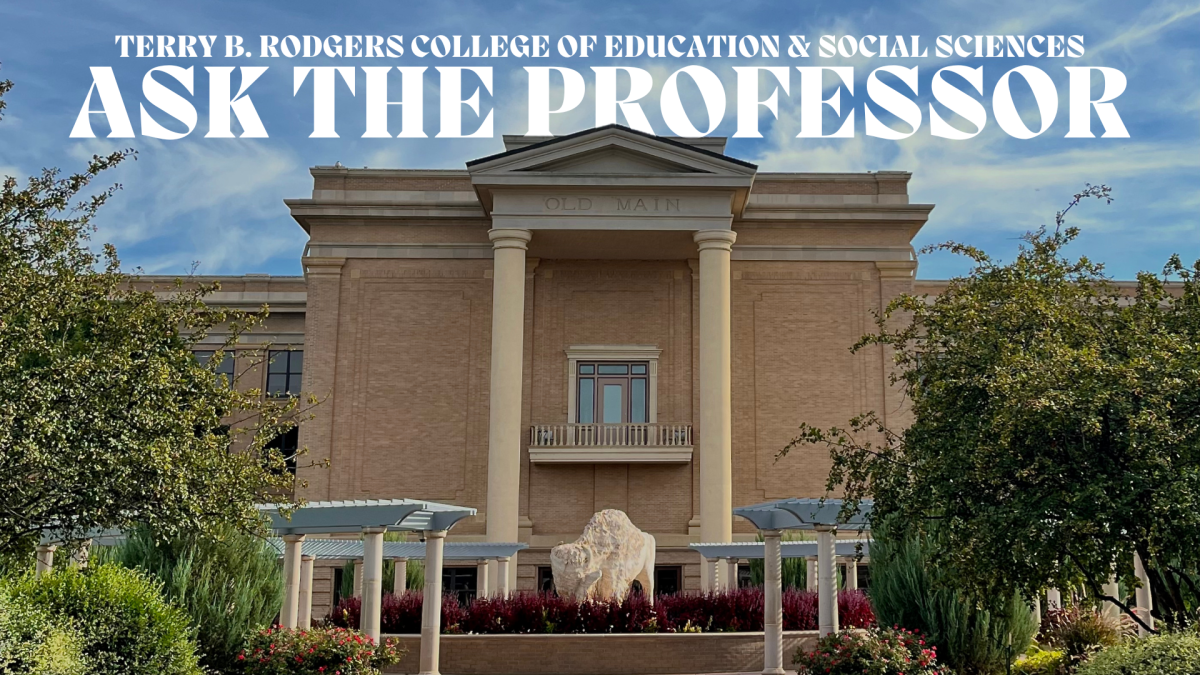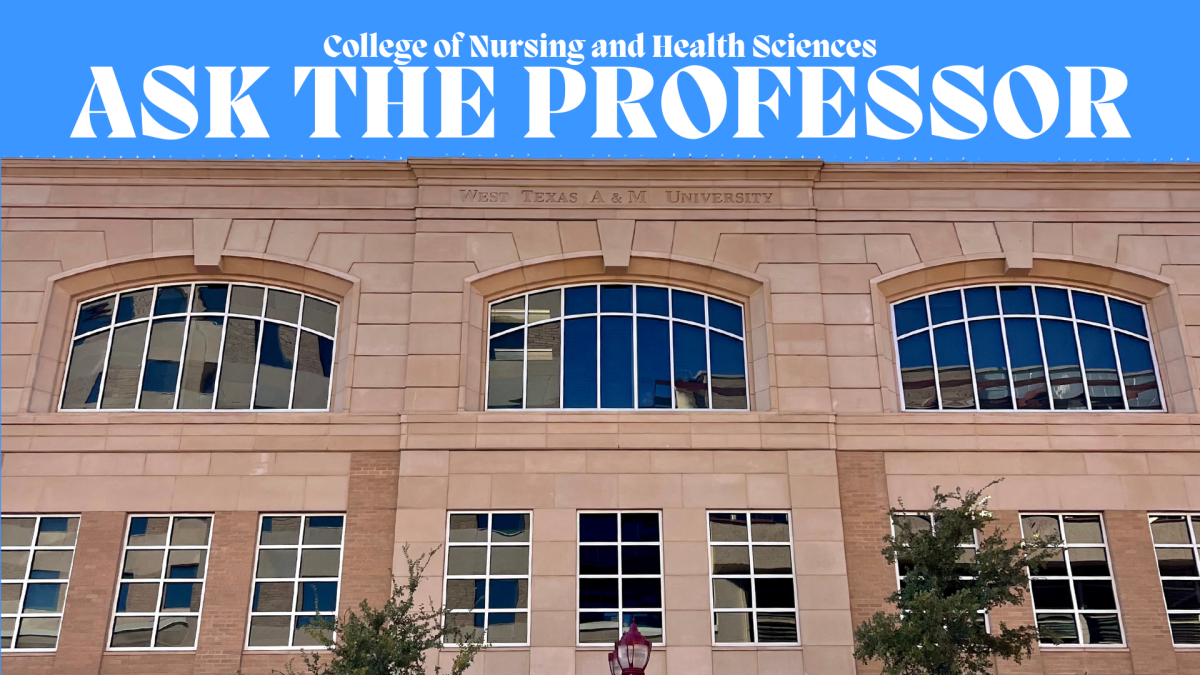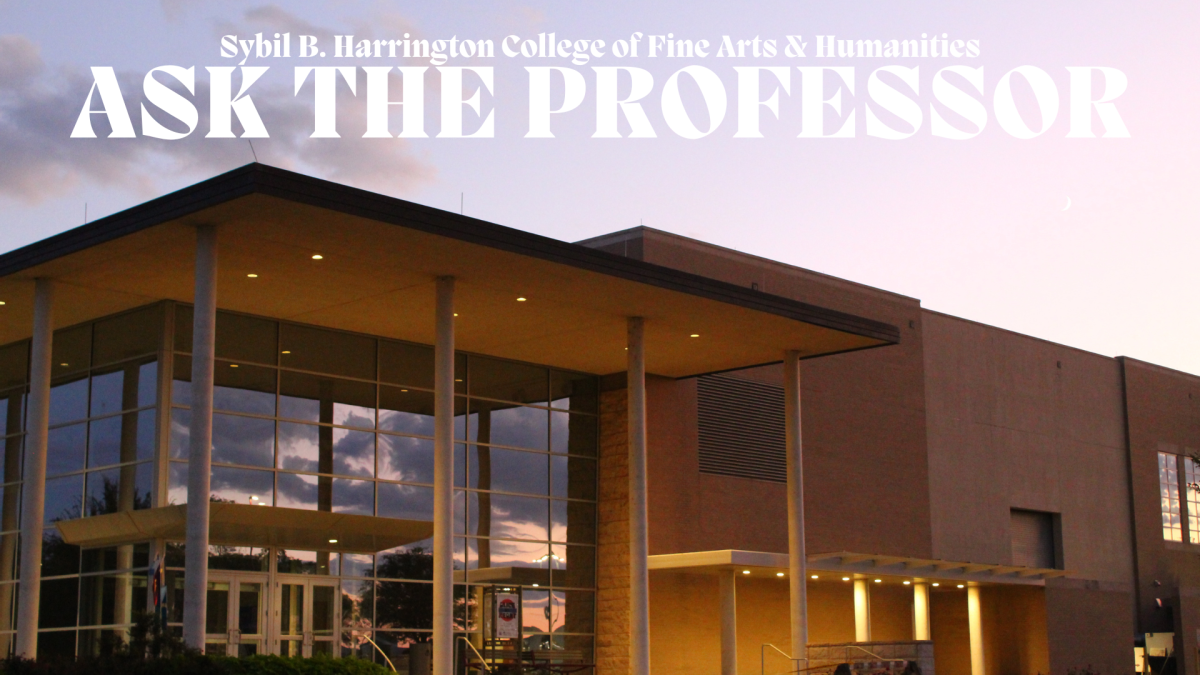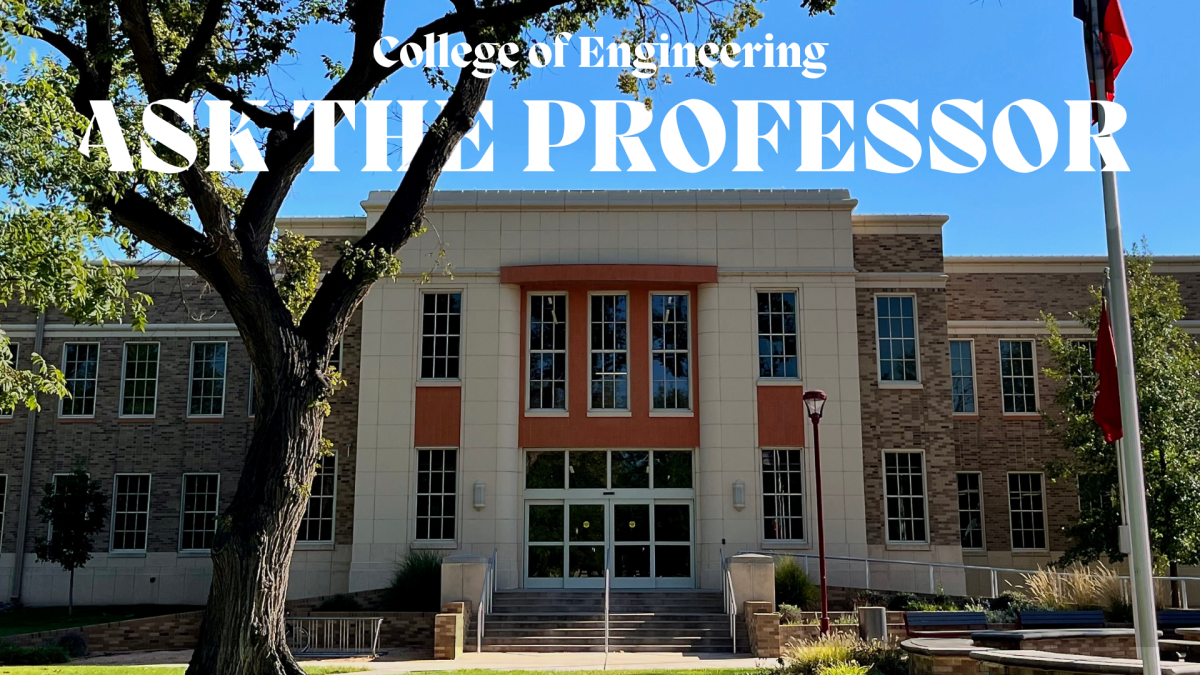Dr. Marisa Crisostomo is a clinical assistant professor of decision management for the Paul and Virginia Engler College of Business at West Texas A&M University.
Crisostomo received a bachelor’s degree in psychology before switching to a business and statistics-focused field of study.
“I completed my bachelor’s in psychology at Gonzaga University in Washington state,” Crisostomo said. “Then I got my master’s in cognitive psychology at the University of Oklahoma. After that, I came to work at WT in 2017 and started teaching statistics.”
Cristosomo detailed how after her schooling in psychology, she came to teach statistics.
“My minor in graduate school was in quantitative statistics,” Crisostomo said. “When you do cognitive research you need a lot of background in quantitative statistics, so I took a lot of stats classes. When I was looking for jobs, there was an opening here in the college of business that was looking for a statistics professor. Because of my minor, I was able to fill that role here.”
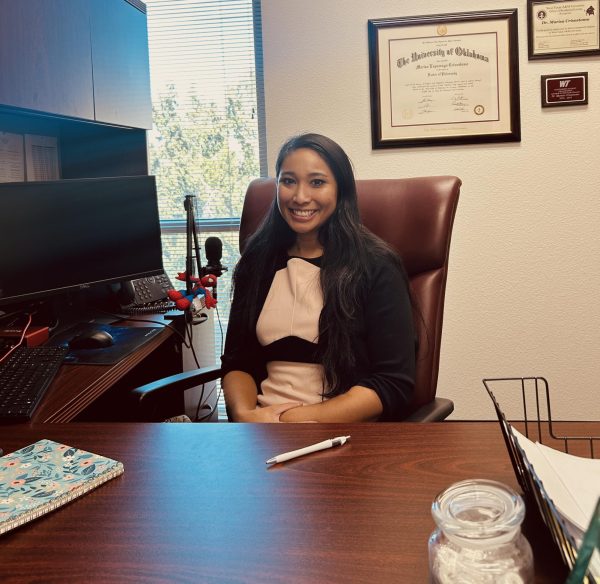
Crisostomo did not always plan on teaching.
“When I went to graduate school, I did intend to do research in cognitive psychology,” Crisostomo said. “But as part of my program, I was a teaching assistant. And I just ended up really enjoying teaching, connecting with students, and sharing my passion for learning. I think learning should always be fun. So I found myself wanting to pursue being a professor.”
Crisostomo teaches a couple of different statistics based courses.
“I teach statistics for business and economics,” Crisostomo said. “It’s basically an intro to stats class. I think statistics is applicable in everyone’s lives because it affects both your personal and professional life. We’re constantly being bombarded by data, so we need to know how to interpret it and where it comes from. So I teach my classes in a very applied manner.”
Crisostomo said her teaching style lies heavily in the application.
“I don’t like rote memorization,” Crisostomo said. “So my teaching style is very focused on application. It serves students being able to critically think and apply knowledge. There is value in learning where the numbers are coming from, but I think there is greater value in knowing what to do with those numbers and how to interpret them.”
Crisostomo had this to say about students’ attitudes toward learning.
“I think learning should be fun,” Crisostomo said. “Everyone should want to learn. It should never be a chore. Your desire to learn will get you pretty far, so being open to new things and learning different ways of thinking and different perspectives is always going to be valuable. Even if something might not be as exciting to you.”




